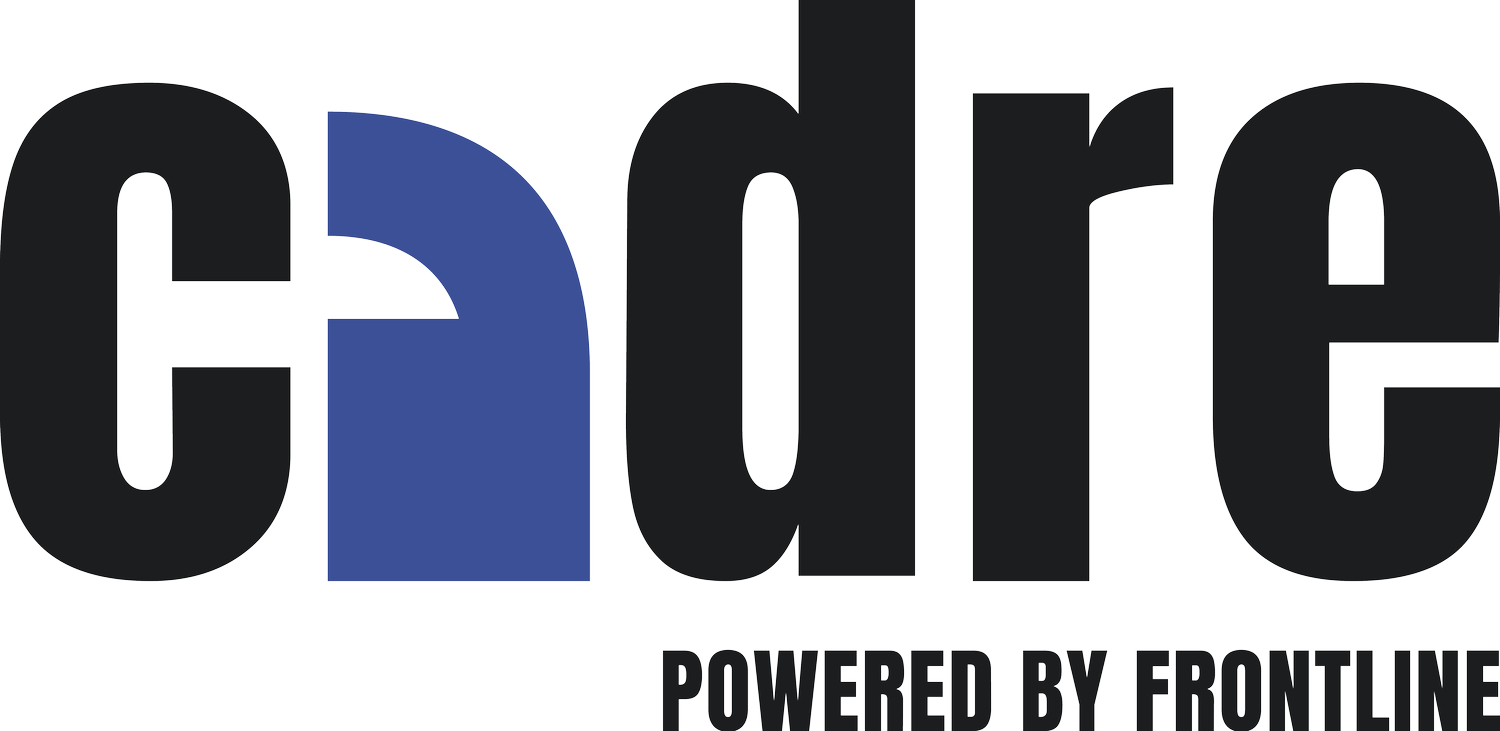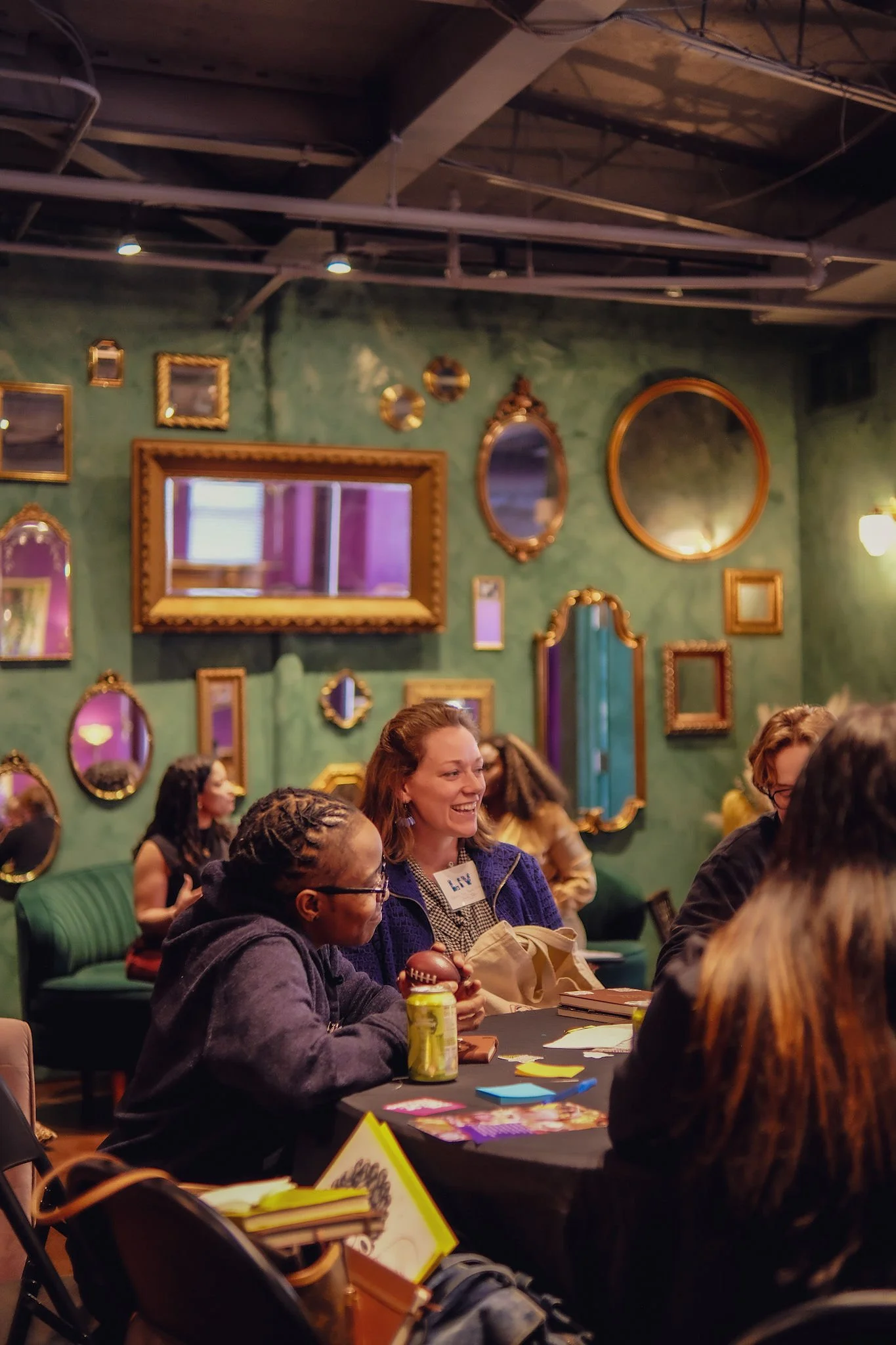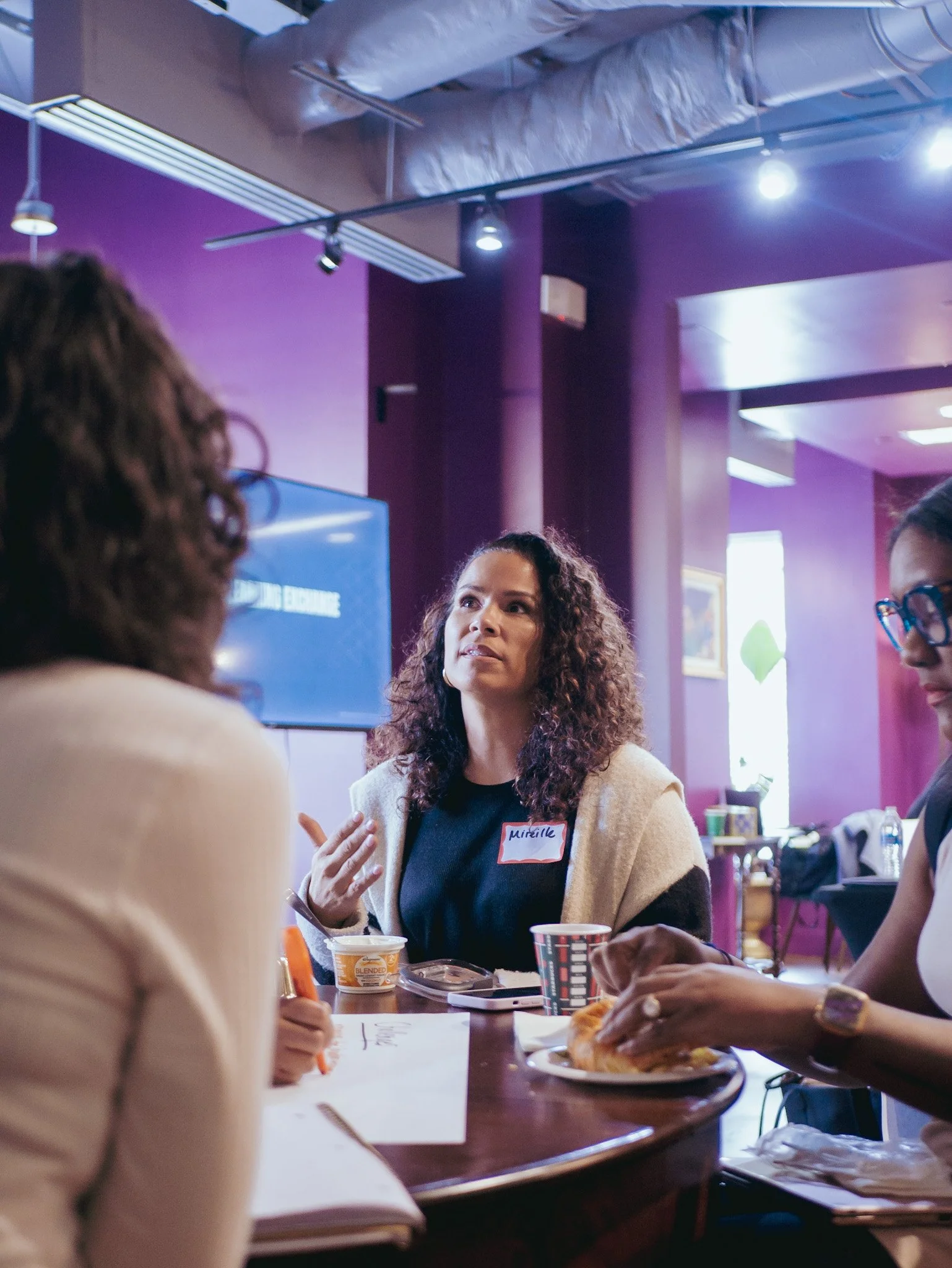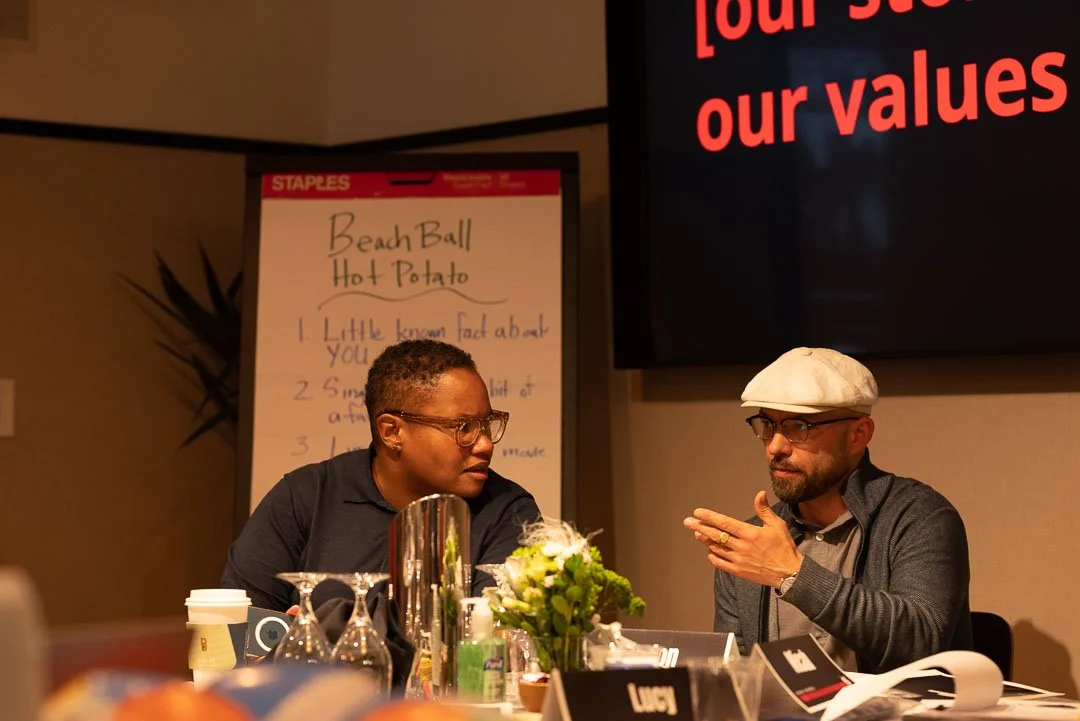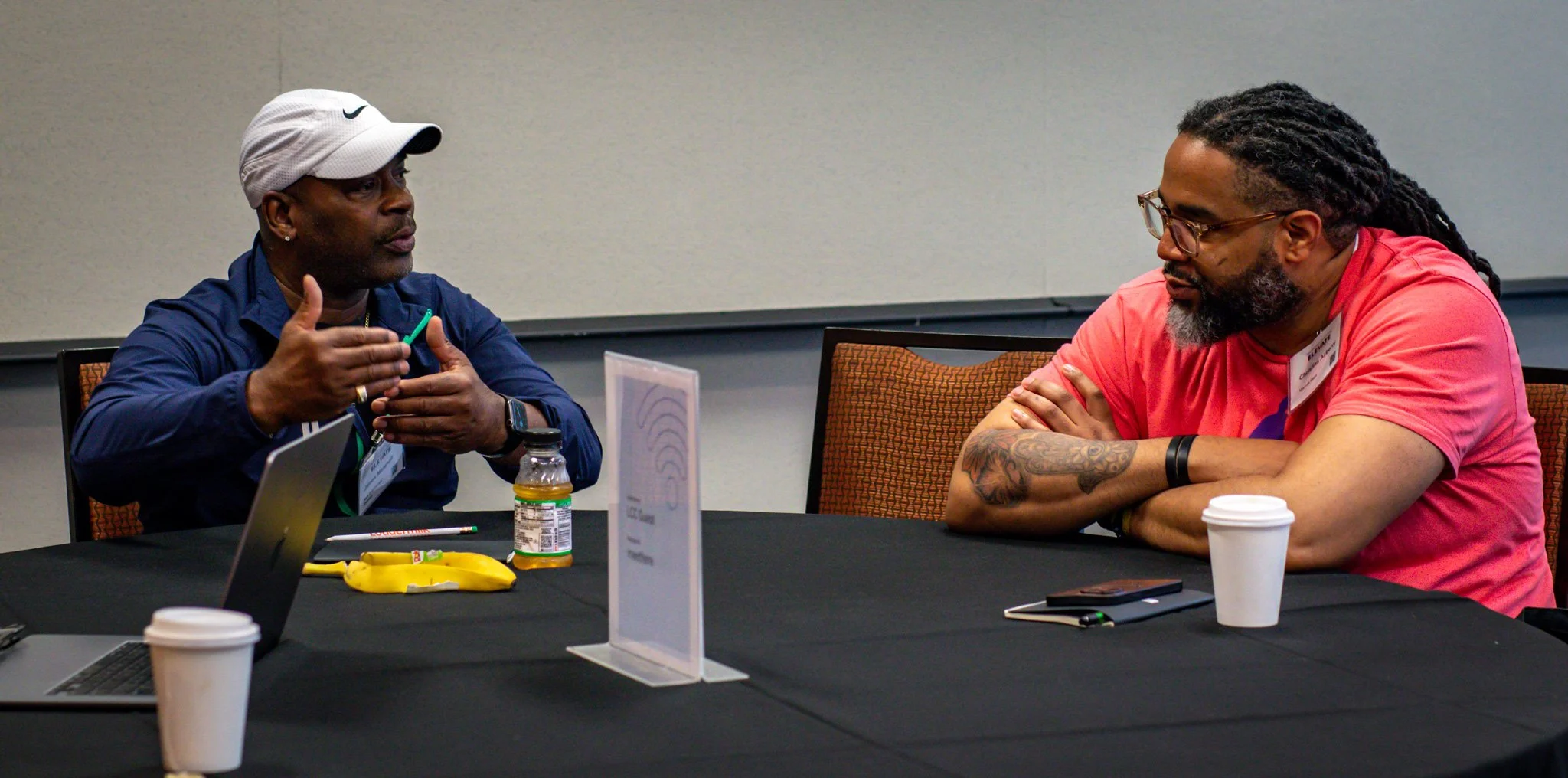The Aya Fellowship Program is a dynamic, 12-month consultancy-based leadership program crafted to empower nonprofit and philanthropic leaders with strategic resilience. Participants gain essential frameworks to sustain equity and justice efforts amid legal and political adversity, practical tools to manage risks, navigate crises, and future-proof DEI initiatives, and access to leading experts and a robust peer network for collective support and action.
The Aya Fellowship equips leadership teams to move from defense to design; embedding resilience, strategy, and vision across their institutions, and ensuring that equity work is not only defended in the face of backlash, but can change the outcomes for future generations.
The Fellowship is intentionally designed for teams of leaders 2-4 from within the same institution and ecosystem. We believe that the future of our movements depends not on the brilliance of a single leader or organization, but on the collective capacity of organizations working in deep coordination.
"Endurance, independence, defiance against difficulties, hardiness, perseverance, and resourcefulness."
Aya comes from the Adinkra symbols of the Akan people of West Africa. The symbol itself is the fern: a plant known for its remarkable ability to thrive in difficult places: rocky soil, shaded forests, and under harsh conditions where other plants might wither.
The fern does not simply survive; it flourishes because of its hardiness, flexibility, and quiet power. Aya represents:
Eligibility:
Aya is designed for teams of leaders from nonprofit organizations who are doing their part to create a world where all people can thrive—where communities are inclusive and everyone has access to the resources, rights, and recognition they need to prosper. Ideal fellows are organizational leadership teams that:
Are navigating political, legal, or narrative threats to their work;
Believe that institutional resilience and collective leadership are essential to advancing long-term change;
Are committed to building organizations where all people—staff, constituents, and communities—can show up with dignity and power;
Envision a democracy where everyone has the ability to participate, contribute, and shape our shared future.
FELLOWSHIP OFFERINGS
Strategy Track:
Future-Proofing Equity + Justice Work
Landscape Analysis & Political Risk Assessment
Customized briefings on legal, political, and economic threats to DEI work in different sectors and regions
Scenario planning workshops to anticipate challenges and prepare contingency plans
Strategic Reframing for Sustained Impact
Sessions on messaging and narrative shifts that sustain equity commitments in restrictive climates
Research-based approaches to embedding equity work within broader institutional goals (e.g., talent retention, economic growth, compliance)
Board & Leadership Alignment
Guidance on securing board and executive buy-in
Best practices for structuring DEI commitments within organizational policies to ensure longevity
Support Track:
Peer Learning & Collective Action
Fellowship Cohort Circles
Curated small-group cohorts matched by sector and region for deep peer learning and confidential problem-solving.
Facilitated discussions to share strategies, troubleshoot challenges, and sustain morale.
Cross-Sector Collaboration & Movement Building
Bridges between nonprofits, funders, legal advocates, and grassroots organizers to align strategies.
Collective advocacy efforts and joint statements to push back against anti-equity narratives.
Wellness & Sustainability for Leaders
Trauma-informed leadership coaching to address burnout and stress in the current climate.
Personal resilience-building sessions, including mindfulness, coaching, and community care strategies.
Defense Track:
Legal, Policy, and Crisis Navigation
Legal Defense & Compliance Guidance
Partnership with civil rights attorneys and policy experts to provide legal navigation for organizations facing DEI-related challenges
Pro bono legal consultation sessions for fellows on employment law, contracting, and funding compliance
Crisis Response & Risk Mitigation
Training on de-escalation strategies when facing external pushback
Case study-based simulations on handling public and legal attacks on DEI initiatives
Funding & Philanthropic Safeguards
Best practices for securing funding that shields equity work from political interference
Alternative funding strategies, including donor collaboratives and unrestricted reserves
PROGRAM GOALS
